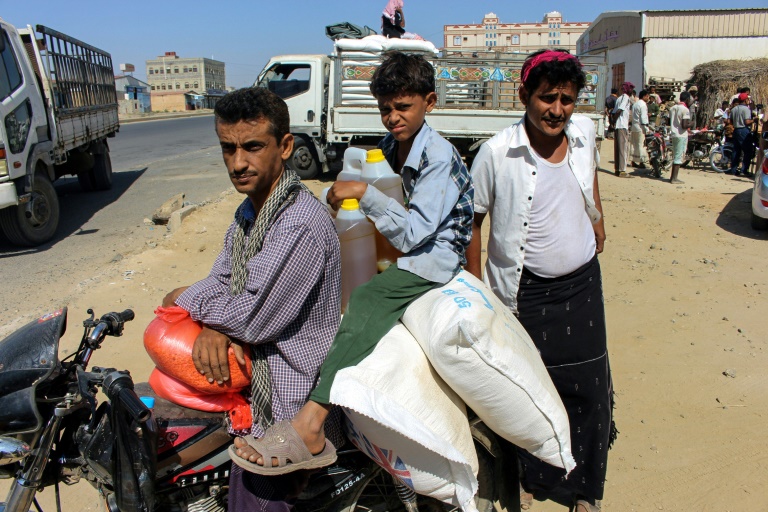OPINION: Sundowns are on a path of self-destruction
Some 8.4 million people are at risk of famine, up from 6.8 million in 2017, the UN humanitarian affairs office (OCHA) said.
A total of 22.2 million people, or 76 percent of Yemen’s population of 29 million, are dependent on some form of assistance, an increase of 1.5 million people over the past six months.
The United Nations’ efforts to address what it has described as the world’s worst humanitarian crisis have been hampered by a crippling blockade of rebel-held ports by the Saudi-led coalition that intervened in support of the beleaguered government in March 2015.
Following a rebel missile attack on Riyadh airport in November, the coalition halted even UN aid deliveries but it has since eased that measure.
On Monday, a ship carrying four US-purchased mobile cranes that had been blocked by the coalition for months docked in the main rebel-held port of Hodeida.

A man and child ride on a motorcycle loaded with sacks of wheat and cooking oil containers distributed as food aid by a local charity at a camp for the displaced, in the northern Yemeni province of Hajjah on December 23, 2017
Around 70 percent of Yemen’s imports pass through Hodeida and UN spokesman Stephane Dujarric said the cranes will “significantly boost the discharge of humanitarian cargo”.
“This will allow for faster delivery of relief items for Yemeni families in the grips of the world’s biggest hunger crisis,” he said.
But UN aid officials warn that access for humanitarian deliveries remains a concern even if the blockade is lifted.
A total of 9,245 people have been killed in Yemen since the coalition intervened in 2015, according to World Health Organization figures.
More than 50,000 have been wounded and millions displaced from their homes.
As Yemen’s health care system has been brought to the brink of collapse, more than one million people have been infected with cholera, of whom more than 2,000 died, according to the International Committee of the Red Cross.
Download our app and read this and other great stories on the move. Available for Android and iOS.